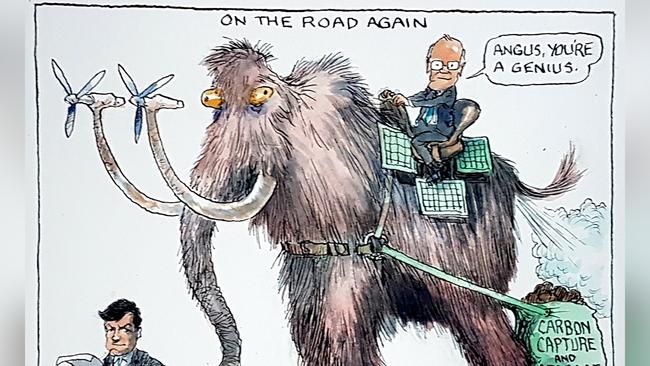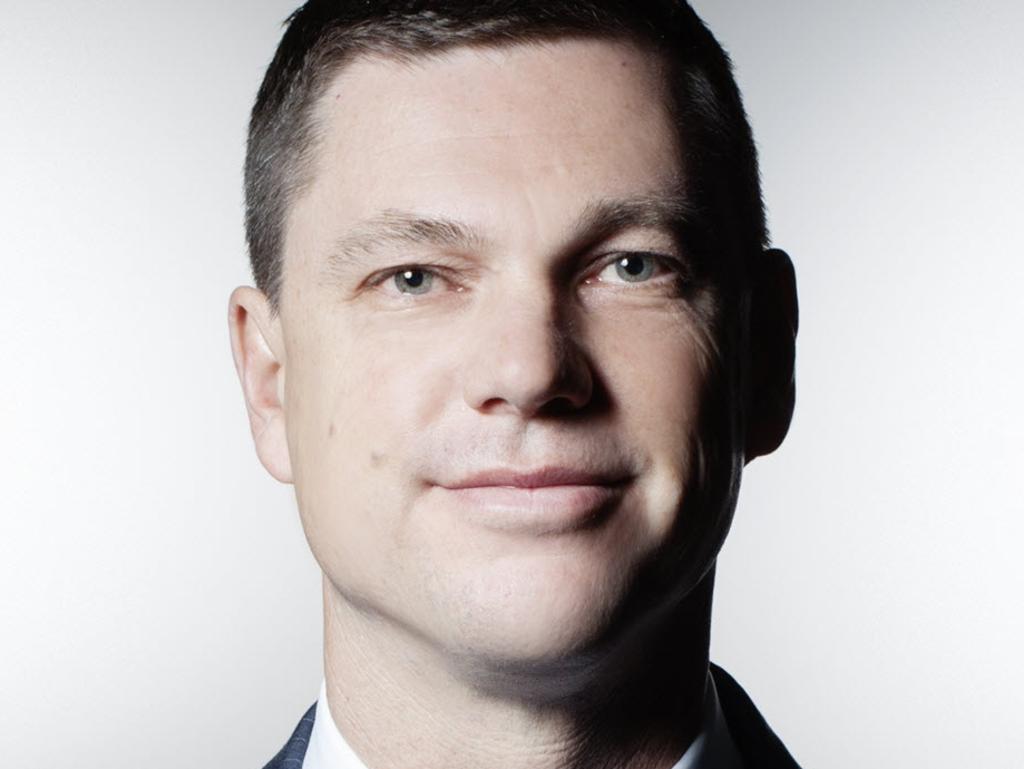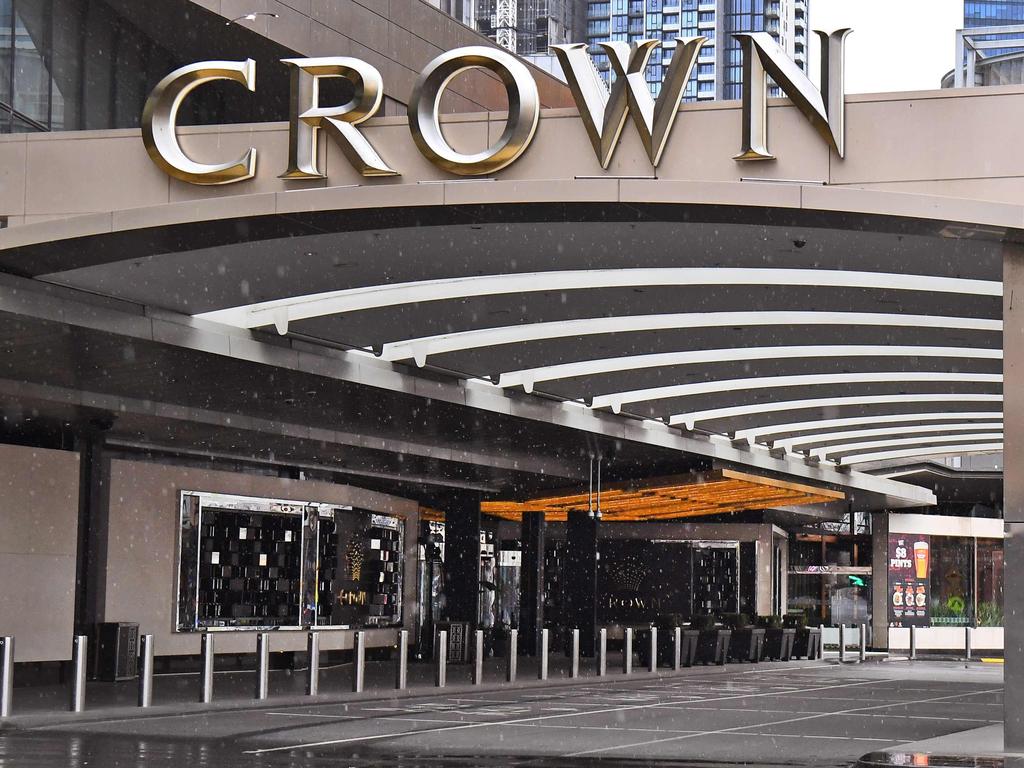
But that’s still a long way short of sparking a boom in lending.
The reality is while the move may help support the housing market, credit growth is minimal because people don’t want to increase their debt given the present economic uncertainty, not because of too much regulation.
On the regulatory stakes, ASIC will now take more of a back seat role, having already taken a Federal Court beating on its attempts to regulate responsible lending, and the more bank-friendly APRA comes back to the fore.
Not so long ago the Hayne royal commission was delighting in showcasing banks behaving badly and Canberra led the way in sinking the boot in, but now all of a sudden the Treasurer sees them for what they are — the supplier of capital to help fuel growth in the economy.
The banks and business are revelling in this belated renewed political support, but that does not necessarily translate into credit growth.
Australia’s personal debt metrics are among the worst in the world, with household debt to income running at 200 per cent and mortgages to GDP at 100 per cent, on UBS figures.
The banks would actually like to lend more money because that is how they earn profits.
With about $200bn in deferred loans on their books, any floor under the housing market may also help minimise the losses.
A dream scenario for any bank would be for deferred loans to remain sound because consumer interest on the outstanding debt compounds, boosting bank earnings. Official interest rates are at all time lows and yet people still don’t want to borrow and business thinks the immediate post-pandemic future is too uncertain.
It’s not the regulations or the banks’ overzealous caution that are the problems — it’s jobs and the economy.
This said, cutting regulation is always a good idea and the banks by now should know what the community expects of them in terms of responsible lending standards without needing red tape to support it.
But there are not a lot of banks around town turning away potential borrowers or customers walking deterred by red tape.
Investment loans account for roughly a third of home loans, but demand is weak in part because we are in the middle of the worst recession in a generation, house prices are falling and people can’t afford to pay rent because they don’t have a job.
“Buy now pay later” products are reportedly popular because young people don’t want to be burdened by credit card debts.
When the economy does turn, fewer regulatory hurdles will help increase the capital flows and bank risk measurement will again be tested and hopefully favourably by balancing responsible lending with stronger bank earnings.
That is what Frydenberg is trying to overcome, but at the end of the day it’s all about jobs and a stable macroeconomic environment. Until there is evidence of both, lending growth will remain weak.
A premier retailer
In the last 12 months Premier Investments’ net profit increased from $106.8m to $137.7m on a 4.3 per cent fall in sales to $1.2bn, but net cash flow from operating assets increased from $138m to $483m — the latter being a good guide to how well the retailer is performing.
The company doesn’t detail how much government support its workers earned through JobKeeper, but the accounts show total government payments of $69m and Solly Lew told the media on Friday that JobKeeper totalled $35m.
Cashflow increased so much in part because landlords were not paid, staff were not all paid when they were stood down and so on, but it also shows the retailer is being very well run.
Chief Mark McInnes took zero pay for the month of April when his stores were closed.
Premier is one of the few retailers that actually makes more money selling online than it does through its stores, and since the new financial year opened online sales have increased by 92 per cent from the year-ago period.
Online sales are now 25 per cent of total sales and that means if the landlord is not playing ball on lease terms it is not a huge decision to simpy walk away.
Last year Premier closed its last four Hong Kong stores, but this was more for political reasons because sales fell sharply in the wake of the pro-democracy demonstrations.
In the UK, 42 per cent of stores were shut.
There is a balance between the ideal number of physical stores to back online sales, but if there is a magic formula McInnes isn’t saying, instead pointing to things like a wholly owned distribution centre on the outskirts of Melbourne that handles both online and store merchandise so there is no double handling. He also has a close relationship with Australia Post, using its equipment to help get goods out the door.
The formula is working a treat.
NBN battles in pipeline
The NBN wholesale monopoly is not quite as home as you may have read elsewhere with myriad regulatory battles ahead.
NBN started with a regulatory failure with Telstra refusing to play, then under Stephen Conroy as a brilliant concept poorly executed, to under the Coalition a bad concept brilliantly executed by Bill Morrow and Stephen Rue.
Peak funding has now gone to $59bn and, according to New Street’s Ian Martin, cashflow will hopefully get to break even by 2024, from negative $6.9bn last year.
Capex will double over four years to $11.8bn, funded by $6bn of extra debt, and the grand plan to increase the number of homes on fibre to the premise will grow by just 400,000 on existing services.
The forecasts depend on NBN reaching earnings per user targets, which in turn need some agreement with its retail service providers (RSPs) on price, and as Communications Day noted on Friday the RSPs are united in opposing the variable CVC charge, which imposes a levy on the retailers depending on how much bandwidth they use.
The RSPs say the NBN charges too much, leaving its prices unsustainable, made worse by the variable measure, and are united in wanting a fixed price.
Optus already has a 5G service on the market offering speeds matching the best NBN has to offer and Telstra will follow suit shortly.
Then there are new technologies like edge computing, mobile data services bringing processing power close to the customer.
All of the above are just some of the variables that may explain why this year the NBN for the first time had no cashflow forecasts in its corporate plan, and just three years ago over-estimated last year’s revenue of $3.8bn by $1.2bn.








Friday’s rally in bank stocks was a measure of relief after Josh Frydenberg effectively moved the banks from their long-standing seat in the naughty corner to the economy engine room by removing red tape and regulatory duplication and backing the banks’ role in the economic revival.